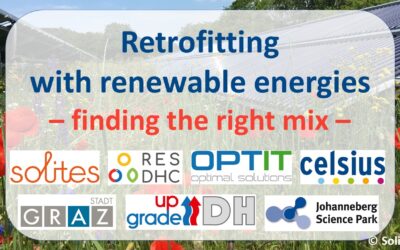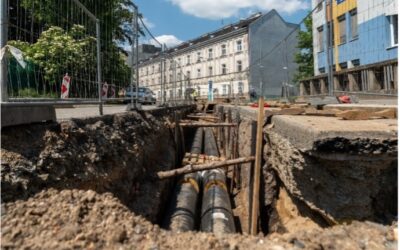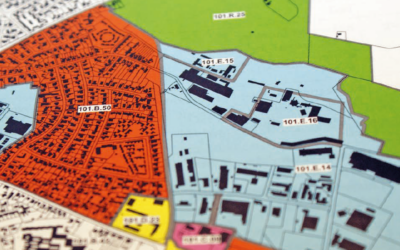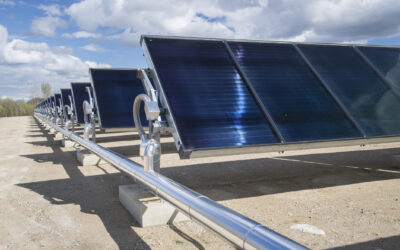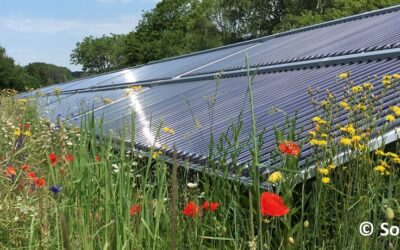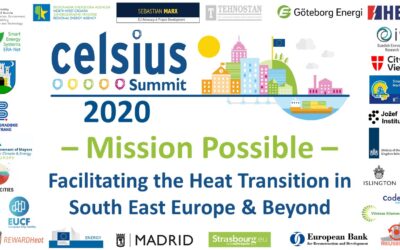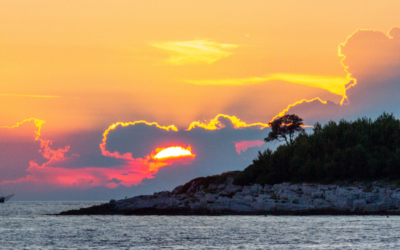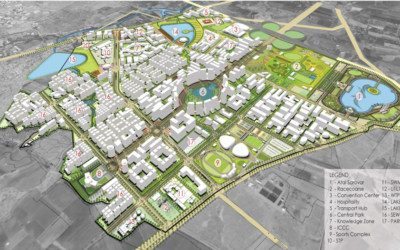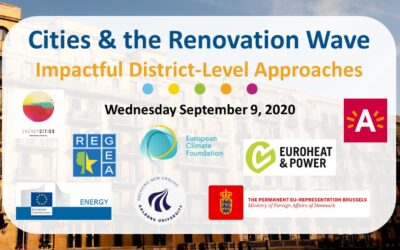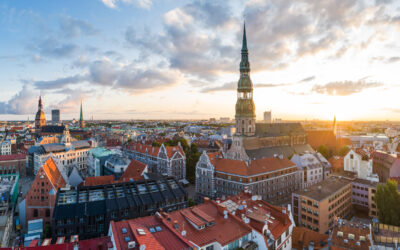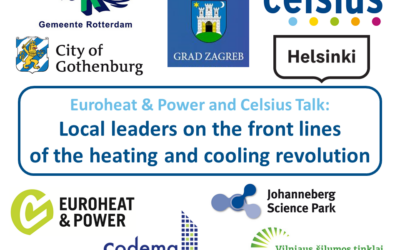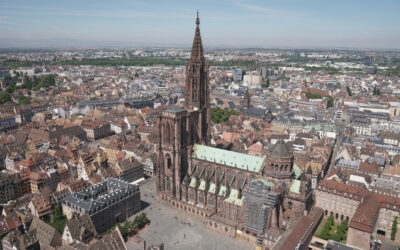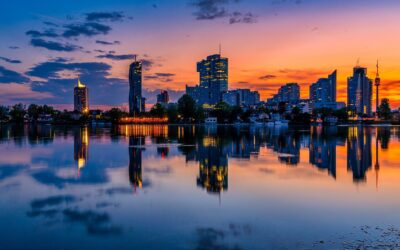Alexandroupolis, a seaside municipality in Greece’s northeast coast is going to have cost-effective geothermal energy and heating soon.
As the world keeps looking to sustainable energy solutions, geothermal energy exploration can be essential for those countries with access to it. In the next 18 months, Greece will implement and complete a new project to explore the Antheia-Aristino low-enthalpy geothermal field near the city of Alexandroupolis.
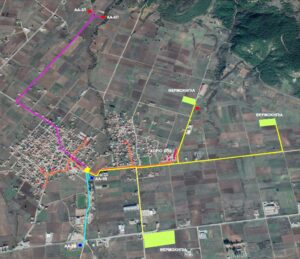
Alexandroupolis geothermal energy system
Geothermal fluid of more than 90 ⁰C
Geothermal energy is obtained through heat derived within the sub-surface of the earth from water and/or steam carrying geothermal energy to the surface. Depending on its characteristics, geothermal energy can be used for heating and cooling purposes or be harnessed to generate clean electricity. However, electricity generation can only be done in areas located close to tectonically active regions. The Antheia-Aristino field is considered as one the most important geothermal fields located in Greece, mainly due to the availability of geothermal fluid of more than 90 ⁰C temperature and its potential for exploitation.
Part of IRIS Smart Cities
Unlocking this low-enthalpy geothermal field is considered as the most important objective of Alexandroupolis’ strategic plan towards a resilient low-carbon local economy. Alexandroupolis is the administrative centre of the Regional Unit of Evros and constitutes an interconnection gate between Mediterranean and Asian countries. This beautiful seaside city is working with a network of smart and sustainable cities (including Gothenburg, Utrecht & Nice) to accelerate deployment and improve performance as part of their work in IRIS Smart Cities.
The investment
The investment for the construction of the geothermal district heating network amounted to 6.2 million Euro. The project was eligible for funding by the ERDF Regional Operational Programme 2014-2020 of Region of East Macedonia and Thrace, which financed 95,31% of it. The remaining 4,69% was invested by Municipality’s own capital.
The first step of the exploitation of the available geothermal energy
It was a long journey for Municipality of Alexandroupolis to finally secure a lease for the exploitation of the geothermal field. The project includes the development of a geothermal district heating network that will provide heat for municipal buildings, social housing and greenhouses with a total thermal power estimated at 10 ΜW. It is considered as the first step of the exploitation of the available geothermal energy since the Municipality aims to expand the geothermal district heating network to residential buildings and potential industrial consumers.
Working within IRIS, Alexandroupolis and other fellow cities have identified extensive insights on barriers and drivers in flexible energy management and storage as part of the “Replication Roadmap”. This was developed as part of the project to benefit from in-depth peer-2-peer exchanges with frontrunner cities.
Lessons learned
The lessons learned during the development of the project highlight the increased effort and time required for completing studies and licensing. Accounting for time and expenses in licensing is an important point to raise when considering the replicability of geothermal projects in other regions and cities.
Webinar: Retrofitting with renewable energy sources – finding the right mix
As the general trend in the energy sector and the supporting policies aim towards 100% renewable energies for 2050, upgrading heat generation with…
A “Fit for 55 Package” under the EU Green Deal: an opportunity for DHC
As announced in its work programme for 2021, published at the end of last year, the European Commission has started working on the so called “Fit…
KeepWarm: Supporting modernisation of district heating systems in Central and Eastern Europe
The KeepWarm project, funded under H2020 Energy Efficiency, worked to accelerate investments to retrofit existing inefficient heat networks, improve…
Urban Thermal Energy Planning
The state of Baden-Württemberg (SW Germany) introduces compulsory municipal heat planning for the biggest cities in the state. For the first time,…
Generating Heat with Renewable Energy
Upgrading measures on the heat generation are related to the integration of renewable energies. For the assessment of the existing heat generation…
Renewable energy sources in district heating and cooling as a path to climate-neutral cities
The European Horizon 2020 Programme for Research and Innovation promotes ways to address societal challenges such as climate change and energy…
Celsius Summit host: “Abundance of opportunities the coming 7 years”
Hello, Dr Julije Domac, Managing director of the North-West Croatia Regional Energy Agency (REGEA), host of Celsius Summit 2020. Which are the key…
Celsius Summit 2020 – biggest Celsius event to date
Mission Possible! The 2020 Celsius Summit, co-organised by the Celsius Initiative and the North-West Croatia Regional Energy Agency (REGEA),…
Gothenburg’s road to fossil free district heating 2025
About 90 percent of apartment buildings, 12 000 detached houses and numerous industries, offices, stores, and public buildings are connected to…
Geothermal solves the energy dilemma of European cities
Cities dominate energy demand and it is essential to wean our cities off fossil fuels and replacing these with geothermal and other renewables.
Phasing out fossil energy in Croatia
An interview with Tomislav Novosel, project leader at REGEA and one of the main organisers of the Celsius Summit 2021.
District Cooling in Rajkot, India
The city of Rajkot, in the state of Gujarat, India, is the first pre-existing city in India to tender a district cooling system.
Webinar: Cities & the Renovation Wave – Impactful District-Level Approaches
This webinar focuses on how the “Renovation Wave” will provide support to cities and regions when they decarbonise their building stock.
Riga, making a difference in the Baltic countries
The Joint Stock Company (JSC) “RĪGAS SILTUMS” is the biggest District Heating (DH) company in Latvia and in the Baltic countries. The company is…
The EU Renovation Wave, Reenergizing District Energy
As part of the EU Green Deal, the European Commission has announced a Renovation Wave initiative to boost the energy efficiency and the renovation…
Webinar: Local leaders on the front lines
Five star cities presenting their best practices in efficient heating and cooling solutions for a sustainable future.
The European capital goes green with district heating
With a political commitment & the technological potential, Strasbourg aims to reach their energy transition targets with deep geothermal energy and waste heat from Germany.
Vienna shows the way towards a fossil free building stock with climate protection areas
Climate protection areas are showing to be an efficient tool to wean Vienna’s building stock from fossil fuel. From now on, any new buildings in these areas must be supplied with renewable energy or district heating.

